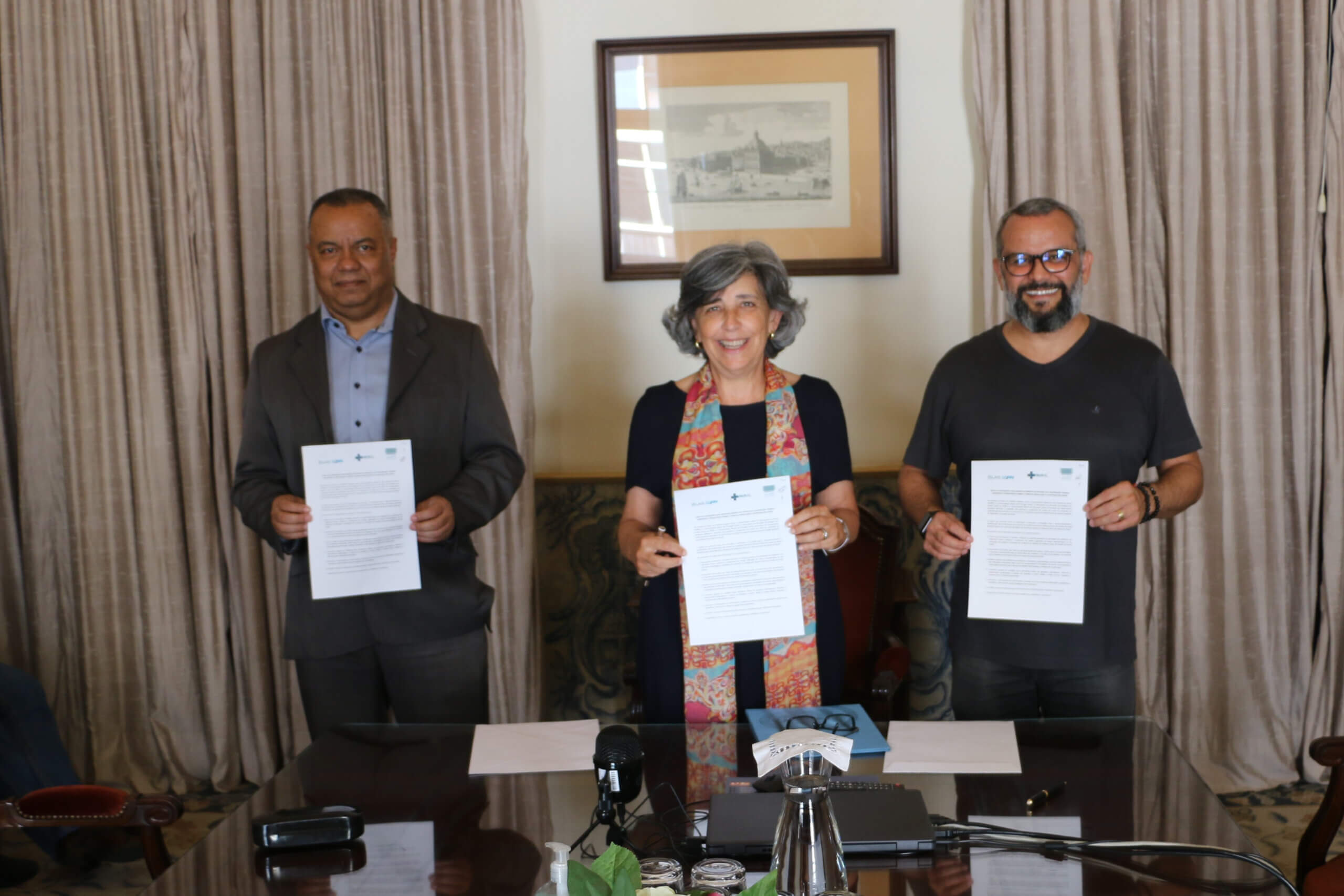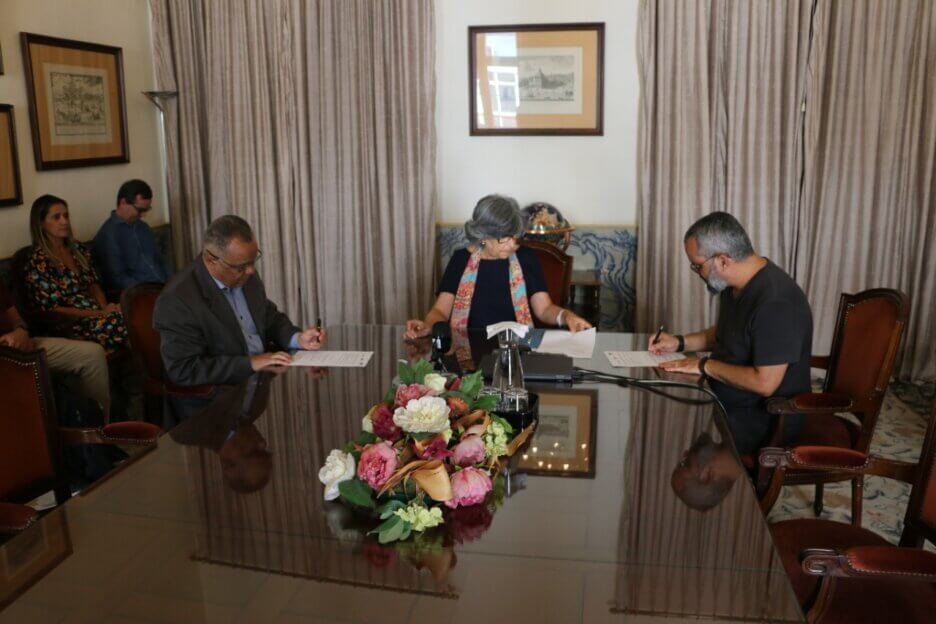By Bruno Cássio – LAIS/UFRN Communication Department
In Brazil, the supervision of the resources allocated to operating the Brazilian National Health System (SUS) is coordinated by the General Audit of SUS (AudiSUS). AudiSUS’s mission is to analyze the implementation of public health actions and services, drawing on economic, efficiency, efficacy, and effectiveness criteria. Invited by AudiSUS, the Laboratory for Technological Innovation in Health (LAIS) at the Federal University of Rio Grande do Norte (UFRN) has collaborated in developing systems that help address this difficult task.
This Friday (16), such a mission was reinforced by the Open University of Portugal (UAb/PT). A letter of intent to develop a project to provide training for about 1,000 healthcare auditors was signed. The rector of UAb/PT, Carla Padrel, highlighted that the Portuguese university is already a LAIS/UFRN partner in the “Syphilis No” Project. According to Padrel, “this is another step towards strengthening a cooperation that has brought good results, in a field, such as health auditing, which is of interest not only to Brazil but also to Portugal.”
According to the SUS General Auditor, Cláudio Costa, who participated in the signing ceremony in Lisbon, “this letter of intent is a milestone for SUS audit processes, as it will bring research to healthcare auditors and, as they improve their knowledge through specialization, master’s and doctorate courses, they can feel more confident in their auditing activities in Brazil.” 
For Ricardo Valentim, LAIS/UFRN executive director, this new stage of technical cooperation with UAb/PT and the Brazilian Ministry of Health will allow the undertaking of research in public health policy monitoring and evaluation. “It will be possible,” he said, “to view effectiveness from a control standpoint, but not a punitive control, rather, a control concerned with the pedagogical aspect of training management to deliver more results for the Brazilian Health System.”
An international academic and scientific event is expected to be realized by the end of this year. Its purpose is to bring together both partners to discuss the course admission criteria, as well as the lines of research.





